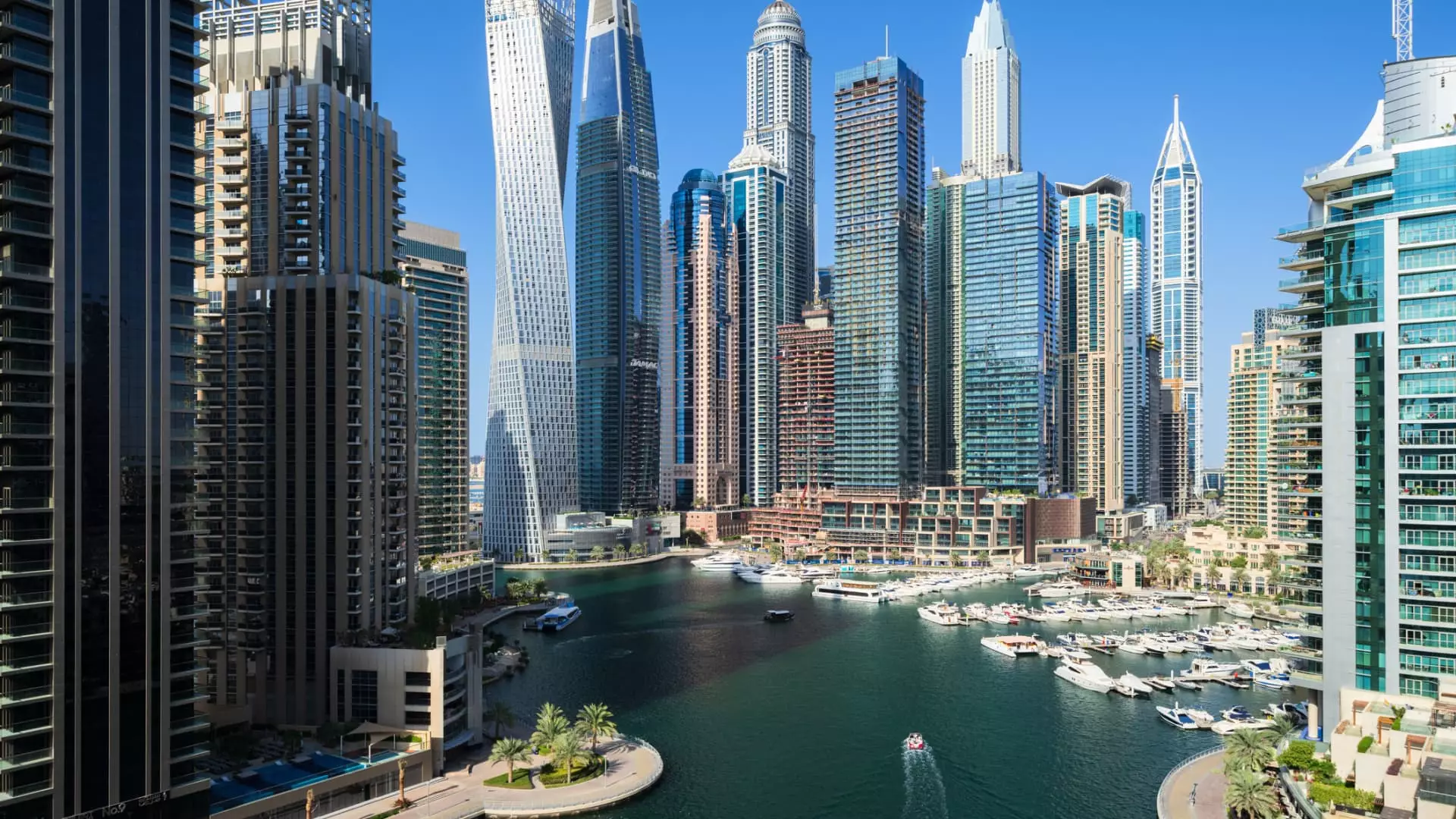Dubai’s property market is currently experiencing unprecedented growth, with 2024 poised to be another record-breaking year in terms of sales and property values. The surge in demand, particularly in the luxury segment, has led to skyrocketing prices not only in residential properties but across the board in the city. This surge in demand comes at a time when the United Arab Emirates is set to retain its title as the world’s top destination for wealth for the third consecutive year. While this may seem like a positive development, it also brings about challenges for both residents and investors, as highlighted by Hussain Sajwani, chairman of Damac, one of Dubai’s leading property developers.
Sajwani expressed concerns about the increasing cost of living in Dubai, describing it as an “expensive city” due to the high demand for housing and services. He pointed out that the influx of talented individuals to the city has created a scarcity of resources, such as school seats, and this has contributed to rising prices and inflation. Sajwani emphasized the need for government intervention to address these challenges, but acknowledged the difficulty of finding solutions in the face of continuous population growth.
The latest data from the Dubai property market paints a picture of a booming industry, with property sales reaching a staggering 49.6 billion dirhams in July 2024, marking a 31.63% increase from the previous year. The first half of the year alone saw over 43,000 property transactions valued at approximately AED122.9 billion, indicating a substantial growth trend. Elite Merit Real Estate’s report highlighted the rapid absorption of new inventory as a key driver of this growth, with around 80% of units launched since 2022 already sold.
Despite the challenges posed by the ongoing pandemic, Dubai has managed to position itself as a desirable destination for both residents and businesses. The city’s proactive approach to managing the crisis, including initiatives like remote work visas and entrepreneurship programs, has attracted a diverse range of talent and investment. Sajwani pointed out that Dubai’s global appeal has only strengthened during this period, with a growing number of individuals from various backgrounds choosing to call the city home.
Dubai’s property market has experienced significant fluctuations in the past, most notably during the 2008-2009 crisis when the market crashed, leaving many investors in dire financial situations. When asked about the potential for history to repeat itself, Sajwani expressed confidence in the current regulatory framework, emphasizing the strict regulations imposed by the government on developers, customers, and zoning. He highlighted the effectiveness of these regulations in safeguarding the market from excessive risks and ensuring stability in the long term.
While Dubai’s property market continues to soar to new heights, it is essential to be mindful of the challenges that come with such rapid growth. The city’s success in attracting investment and talent must be balanced with sustainable policies that address affordability and accessibility for all residents. By learning from past mistakes and adapting to evolving market conditions, Dubai can ensure that its property market remains a beacon of opportunity for years to come.

